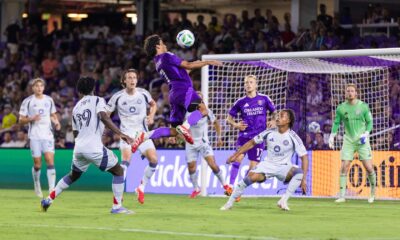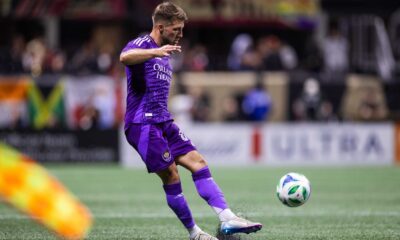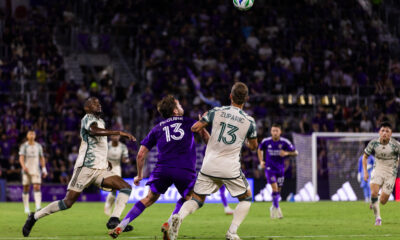Orlando City
Orlando City vs CF Montreal: Player Grades and Man of the Match
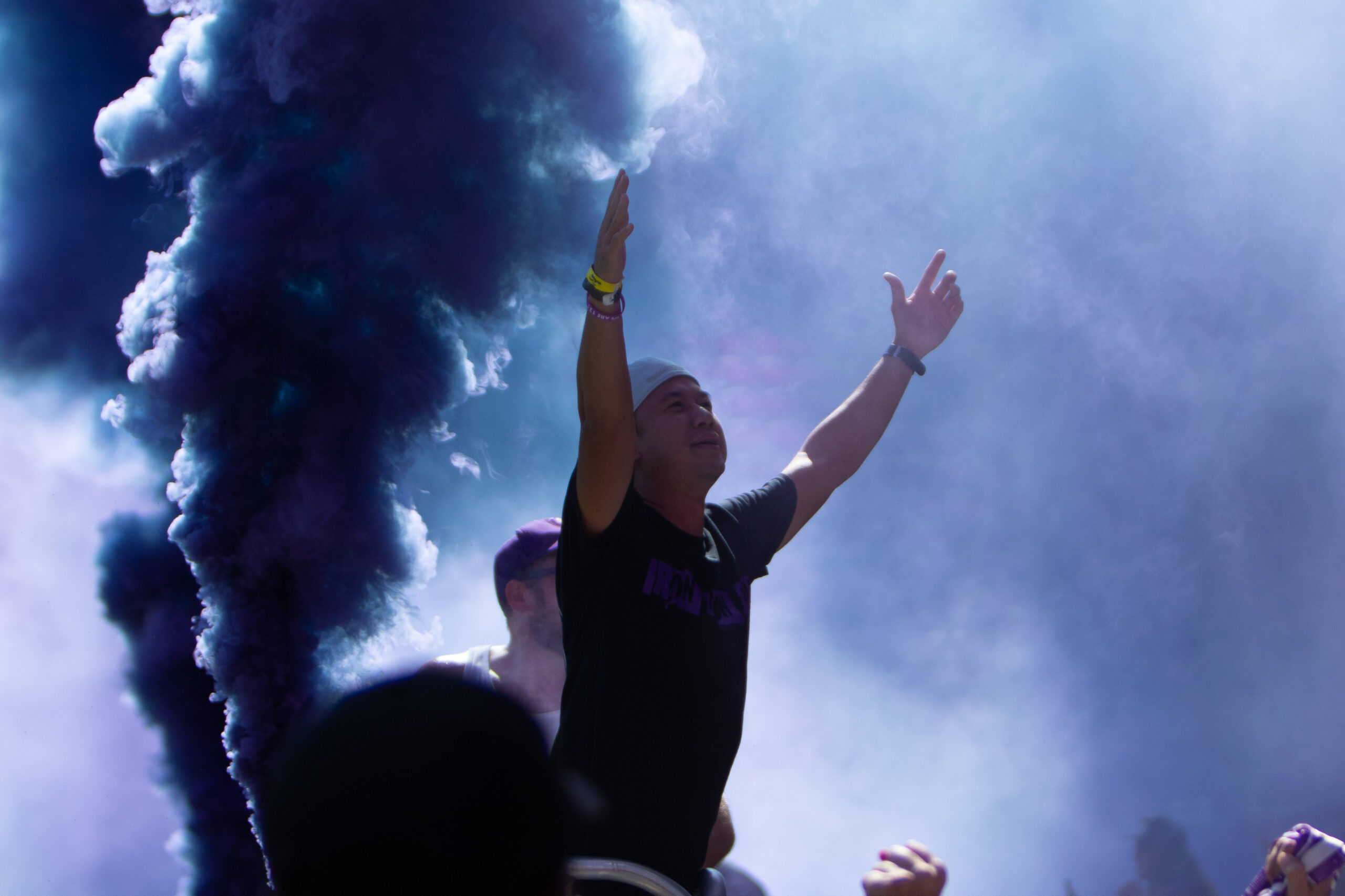
It started so well. Orlando City was on the front foot for the first 15 minutes, but the 20 minutes that followed were devastating as Nani was sent off after a second yellow, and Montreal scored its second goal. This was a night that everything that could go wrong did go wrong, and the Lions paid the price as they head for the playoff goal line. A second loss in a row is nothing to take lightly.
Just a note for those who read our player’s grades: Each staff member has their own scale on how they grade players. My grading involves not just stats and key moments, but also how the player performs against my expectations. If you disagree with how I, or any of our staff, approach our grades, I sincerely encourage you to join The Mane Land staff so you can use your own criteria. Now, let’s see how the Lions did in the loss to CF Montreal.
Starters
GK, Pedro Gallese, 6 — Gallese returned to Orlando City but was unable to help the Lions get any points at home. While Montreal scored four goals, three came when Orlando City was playing with only 10 men. On most of the goals there was nothing he could do, though he really didn’t seem to be himself either. He did make three saves, and one clearance. El Pulpo attempted 18 passes at a 77.8% passing rate and connected on five of 10 long balls.
D, Emmanuel Mas, 6 — Mas got the start and did well in the attack as Orlando tried to work the ball up the field connecting with Nani and Pereyra. He also was in the scrum that resulted in Ruan’s goal. Offensively, Mas took one shot. On defense he had three tackles, and one clearance. Mas attempted 34 passes and had a 79.4% passing rate with one key pass, and attempted two long balls.
D, Robin Jansson, 7.5 (MotM) — The Beefy Swede scored his first MLS goal on a tough night for the Lions. It was Orlando City’s first goal and gave the club life after Nani was sent off. Jansson also made several key defensive plays to keep the match as close as it was. I know that seems strange, but without Jansson’s defense it could have been worse, although he was partly responsible on the first Montreal goal. He attempted 45 passes and had an 88.9% passing rate, while completing three of six long balls. He had one tackle, two clearances, one blocked shot, and committed one foul.
D, Antonio Carlos, 6 — Like the rest of the back line, Carlos had to play a lot of one on one in this match, and that is difficult when the third center back is a midfielder. Defensively, Carlos made three tackles, two interceptions, one clearance, one blocked shot, and committed one foul. He attempted 31 passes and had an 87.1% passing rate, while completing two of four long balls.
D, Ruan, 6.5 — Ruan got caught out of position on Montreal’s first goal. He did make up for it later when he scored Orlando City’s second goal, cleaning up the ball as it bounced off Mas in the box. He used his speed effectively on both sides of the ball, getting back on defense, and stretching the Montreal offense. Offensively, he attempted two shots, scoring on one, with two crosses. He made one key pass, attempted two long balls, and had one successful dribble. Defensively, he made four clearances, and committed one foul. Ruan attempted 27 passes and had an 85.2% passing rate.
MF, Júnior Urso, 6.5 — Orlando City missed the Bear’s presence in the midfield. He provided spark on offense, and consistency in the midfield. Unfortunately, it wasn’t enough to overcome playing with 10 men. Offensively, he took one shot, made two dribbles, and suffered two fouls. Defensively Urso made three tackles and committed one foul. He attempted 39 passes and had an 82.1% passing rate, one successful through ball, and completed two out of three long balls.
MF/D, Andrés Perea, 5 — Perea started the match in the midfield and did pretty well, but as the Lions adjusted their shape to deal with being a man down, Perea was shifted into a central center back position, almost kind of a sweeper at times. Playing out of position is never easy, and though I don’t doubt that he tried his best, he still allowed a goal, and then earned a red card in the 83rd minute when he denied a scoring opportunity. Perea had two tackles, one clearance, and committed one foul. He attempted 41 passes and had a 92.7% passing rate, and completed one out of two long balls.
MF, Mauricio Pereyra, 7 — Pereyra was the playmaker that Orlando City needs every match. His through passes were pinpoint, and he provided the service on both the free kick that resulted in Jansson’s goal, and the ball to Michel that resulted in Ruan’s goal. There were times he single-handedly kept the Lions in the attack. Pereyra made two key passes, one dribble, and suffered one foul. Defensively, he made one tackle, one interception, and committed three fouls. He attempted 61 passes with an 83.6% passing rate and made one successful cross. He also completed seven of nine long balls. If it wasn’t for Jansson scoring his first MLS goal, Pereyra most likely would be Man of the Match.
MF, Silvester van der Water, 6 — Van der Water thought he scored in the seventh minute, but the offside flag was up. He looked to be dangerous in the attack, but shortly after Nani was sent off, van der Water signaled he was feeling something wrong physically. He was subbed off in the 41st minute for Chris Mueller. Offensively, van der Water had no shots that counted, made one successful dribble, and one cross. He attempted 12 passes with a 75% passing rate, with three successful long balls.
F, Nani, 4.5 — Nani earned a yellow in the 28th minute and is experienced enough to know he should be careful after that. Unfortunately, a mere seven minutes later, he was dispossessed outside Montreal’s box, and made a very poor decision to foul from behind when trying to chase down the ball. His effort earned a second yellow and, as such, a red card. The captain put Orlando City in the difficult position of playing down a man for the remainder of the match. Indeed Quioto made Orlando pay for it in the 37th minute after Nani left the pitch, putting Montreal up 2-0. Offensively, Nani took one shot that was not on target, and had two successful dribbles, Defensively, he made one tackle and as mentioned committed two fouls that resulted in his sending off. Nani attempted nine passes with a 77.8% passing rate, and two crosses.
F, Daryl Dike, 5.5 — Dike did well in hold up play, especially once Orlando was playing a man down. Offensively, he had one shot, suffered two fouls and was dispossessed once. His one shot should have been a goal, with a gaping empty net in front of him, but he sent his effort off target. Defensively, Dike made one clearance. He attempted just nine passes with a 77.8% passing rate, and had one cross. Dike came off in the 71st minute for Tesho Akindele.
Substitutes
MF, Chris Mueller (41’), N/A — Mueller came on for van der Water, who was feeling some sort of pain or tightness. I’m not sure if Mueller was wearing the wrong boots, but he was slipping quite a bit, and picked up a knock himself. Oscar Pareja said he tweaked his ankle. He played a total of approximately 10 minutes since he was subbed off at half. Mueller attempted one pass with a 100% passing rate, but that isn’t that impressive. He suffered one foul, and that was it. He wasn’t on long enough to warrant a grade or impact the game.
MF, Benji Michel (46’), 6.5 — Michel was a surprise sub when Mueller wasn’t able to continue at the half, but his speed was just what the Lions needed to try to get back into the match. He did well to handle the ball from Pereyra that resulted in Ruan’s goal. If he doesn’t bring it down, and find Mas in the box, the second goal never happens. Michel had one successful dribble, and suffered one foul. Defensively he made one tackle. He attempted 10 passes with a 90% passing rate, made one cross, and one successful long ball. He also had a shot on target late.
F, Tesho Akindele (71’), 5 — Akindele was brought in to spell Dike when the match was still tied at 2-2. Through no fault of Akindele, it didn’t stay that way long. He attempted 10 passes with an 80% passing rate, and made one successful dribble.
MF, Alexander Alvarado (80’), N/A — Alvarado came on to provide some more offense as the Lions tried to come back following Montreal’s third goal for defender Emmanuel Mas. He attempted 14 passes with a 92.9% passing rate, with one key pass.
That is how I saw the game. How do you feel about the individual performances? Tell us by commenting and voting on the Man of the Match below.
Polling Closed
| Player | Votes |
| Robin Jansson | 22 |
| Mauricio Pereyra | 5 |
| Ruan | 0 |
| Junior Urso | 1 |
| Other: Put answer in the comments | 1 |
Lion Links
Lion Links: 6/3/25
Orlando City B announces signings, details of Concacaf W Champions Cup, UEFA Nations League preview, and more.
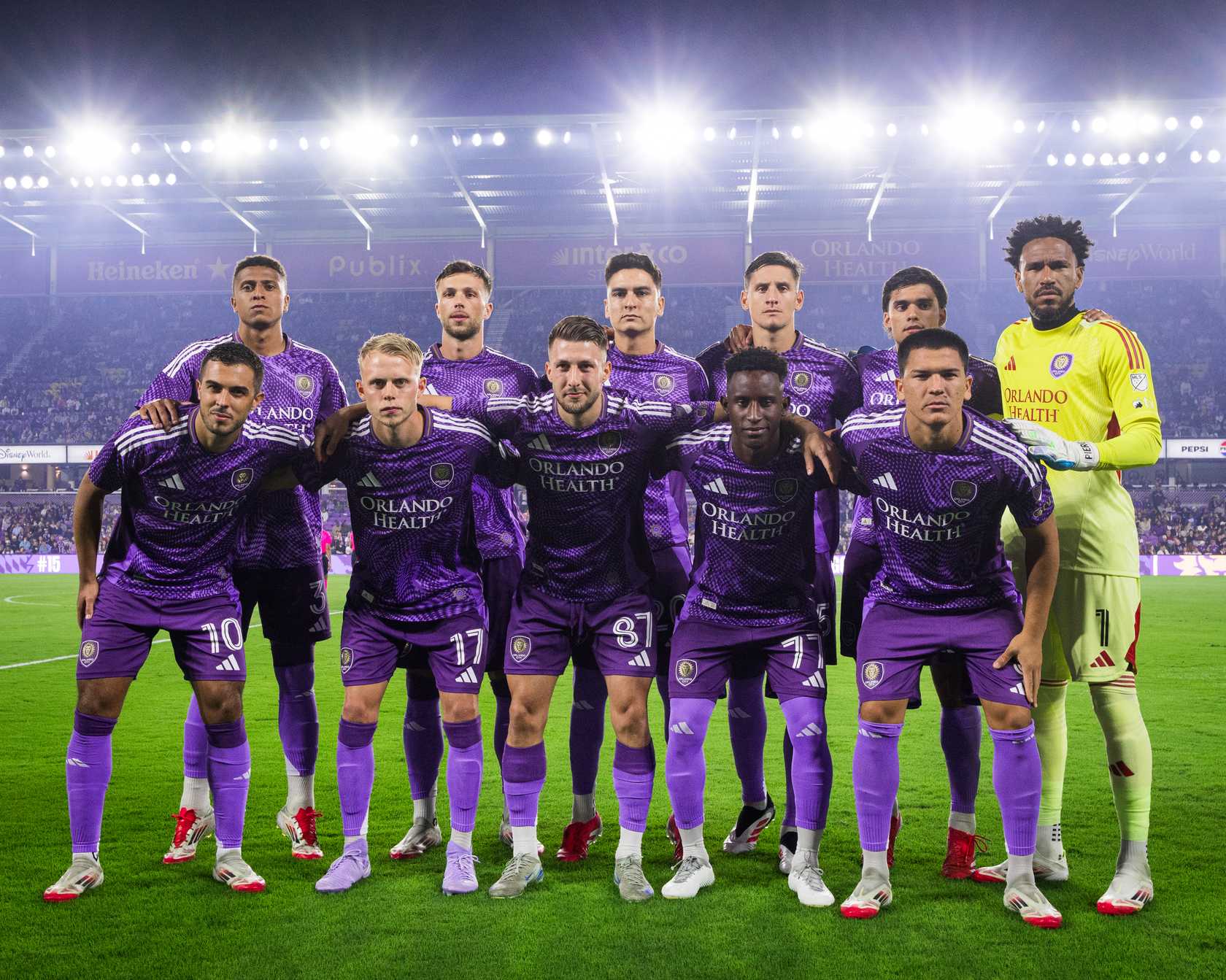
Good morning, everyone. It’s been a pretty brutal last two games for Orlando City, there’s no getting around that fact. While it’s never fun to not have the team in action, a two-week break between games maybe isn’t the worst thing in this particular case. Even though it’ll be a minute before the Lions are back in action, we still have plenty of things to talk about, so let’s get into today’s links.
Orlando City B Announces Signings
Orlando City B announced on Monday that it has signed Clovis Archange and Jackson Platts to MLS NEXT Pro contracts. The pair are graduates of the Orlando City Development Academy and were part of the team that won the U-18 Generation Adidas Cup earlier this year. The 18-year-old Platts captained the team in the final, while Archange was named as one of the players to watch before the tournament started. They’ve both featured for their countries at the youth level, with Platts appearing for the United States U-16 and U-18 teams, and Archange suiting up for Canada’s U-17 side. Congratulations to both players!
Concacaf Announces W Champions Cup Details
Concacaf has named the 10 teams that will participate 2025-2026 Concacaf W Champions Cup and has announced the pots for tonight’s draw. The Orlando Pride are one of three American teams participating in the second year of the competition, and have been placed into Pot 2. Teams will be divided into two groups of five, with each team facing every club in its group once, and the top two sides from each group then advancing to the semifinals. The winner gets a spot in the 2027 FIFA Women’s Champions Cup, and the FIFA Women’s Club World Cup, which is set to be held for the first time in 2028. The draw takes place tonight at 8 p.m.
UEFA Nations League Preview
The UEFA Nations League returns this week, with the semifinals set for tomorrow and Thursday, and the third-place game and final taking place on Sunday. Things get started on Wednesday afternoon with Germany facing off against Portugal in Munich. Germany put away Italy 5-4 on aggregate in the quarterfinals to get to the semis for the first time, while Portugal beat Denmark 5-2, and is hunting for its second Nations League trophy. Thursday has Spain taking on France in Stuttgart. The Spanish beat the Netherlands on penalties in the semis to get here, while France took out Croatia on penalties to punch its ticket. There’s plenty of recent history in this one as these teams also met in the semifinals of Euro 2024 last year, with Spain claiming a 2-1 win.
Transfer Rumor Roundup
The transfer rumor mill has kicked into full swing, so let’s catch up on some of the big talking points. Starting in England, Manchester United has reportedly increased its interest in Brian Mbuemo, with the Brentford forward said to also be interested in moving to the club. There are said to be a number of Premier League teams interested in signing Southampton midfielder Tyler Dibling after his team was relegated to the Championship this season. Jobe Bellingham will reportedly follow in his brother Jude’s footsteps, as he’s reportedly decided to join Borussia Dortmund. Finally, Inter Milan is reportedly interested in signing Marcus Rashford as the Italians look to rebuild the squad following a brutal defeat in the UEFA Champions League final.
Free Kicks
- Here’s a first look at Alex Freeman in his USMNT kit:
- Orlando City dropped two spots to No.9 in ESPN.com’s MLS power rankings.
- Mancester City’s Mateo Kovacic will miss the Club World Cup after having surgery for an Achilles injury.
- Maurizio Sarri has returned to Lazio as head coach just over a year after resigning from the position.
- Atletico Madrid has signed Antoine Griezmann to a new contract.
That’s all I have for you this morning. Vamos Orlando!
Orlando City
Orlando City vs. Chicago Fire: Player Grades and Man of the Match
How did your favorite Lions perform in Orlando City’s 3-1 loss against the Chicago Fire?
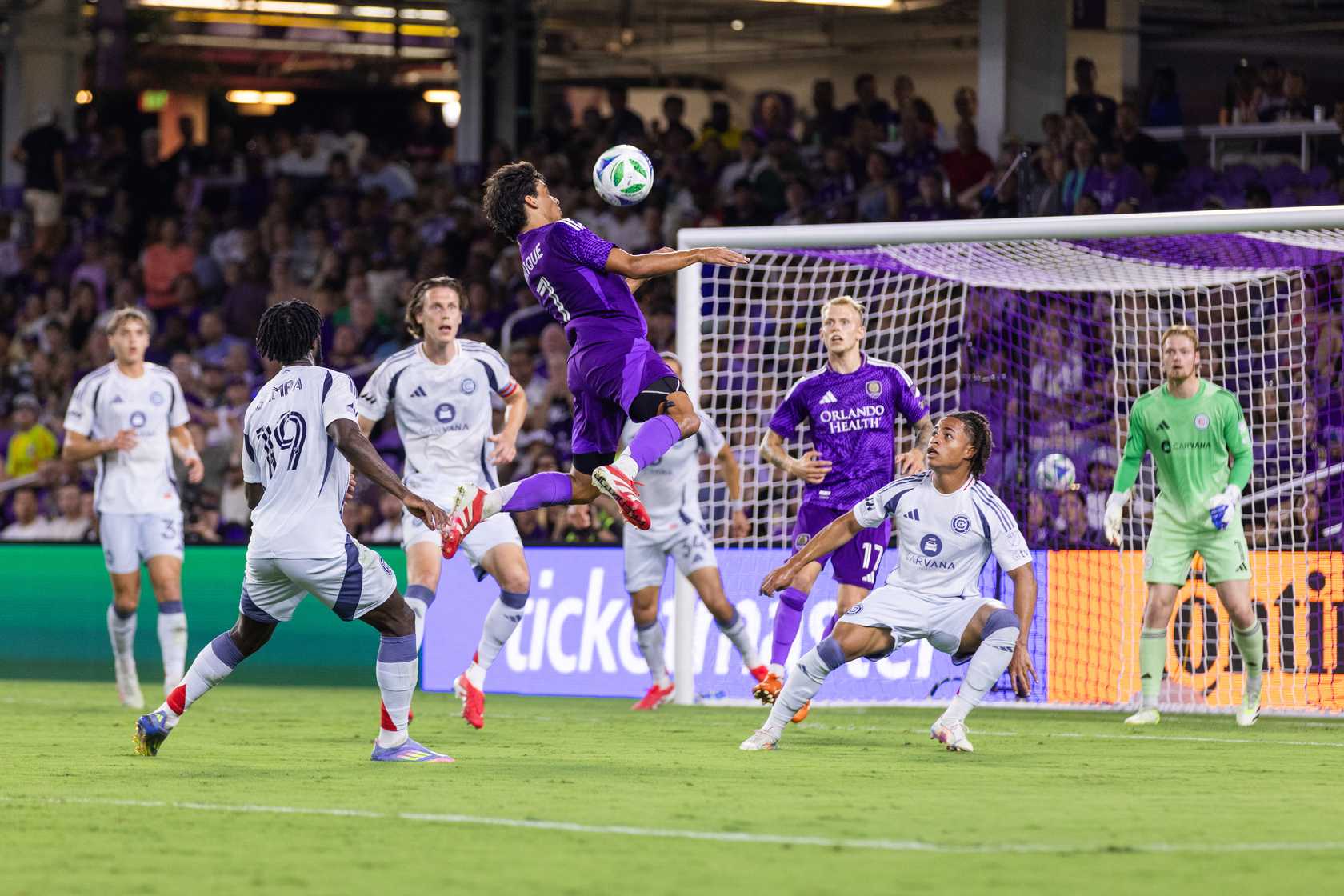
Orlando City turned one loss into two heading into the international break. The Lions gave up three first-half goals and lost 3-1 at home to the Chicago Fire. A determined but ineffective offense wasn’t able to make up for lapses on the defensive end. The break is about a week late, but perhaps the players can get some rest. Let’s take a look at how Orlando City’s players rated individually in their Eastern Conference matchup.
Starters
GK, Pedro Gallese, 5 — El Pulpo literally had the ball slip through his hands on Philip Zinckernagel’s early goal. The other two goals weren’t on him, but it’s hard to forgive the first howler. He recorded one save and one clearance. It was not a great night from Gallese, but every keeper has one like that occasionally. He had 22 touches, completing 89.5% of his 19 passes and five of his seven long balls.
D, David Brekalo, 6 —Brekalo started at left back as usual, but after Rodrigo Schlegel subbed off he moved inside with Robin Jansson. He was busy in both halves of the pitch as he pressed into the attack when at fullback. He didn’t push forward quite as much after moving to center back, though he did still contribute as Orlando chased the match. He recorded 71 touches, completing 86.2% of his 58 passes. Brekalo also completed four of his five long balls. Like many, he managed one shot, though it wasn’t on target as his effort off a corner kick was blocked. Defensively, he tallied three interceptions and one tackle.
D, Robin Jansson, 5.5 — The captain let his emotions get the better of him in the first half. He was battling Hugo Cuypers all night, and given Cuypers scored a brace, I can’t say Jansson won the matchup. His frustration resulted in a yellow card in the 45th minute. After the half, he was able to get back on track, though the damage was done. Jansson had 70 touches, completing 100% of his 59 passes. He had one key pass and even took one shot, though it wasn’t on target. Defensively, he recorded three clearances and one tackle.
D, Rodrigo Schlegel, 4.5 — It was not a good night for Schlegel. He lost Cuypers on the second and third Chicago goals, and it’s not recommended to allow the opposition’s best goal scorer to be alone in the box or to get in behind the back line. Defensively, he only contributed two tackles and recorded no interceptions or clearances. He managed 30 touches and completed 88.9% of his 27 passes. Schlegel committed two fouls and received a yellow card in the 49th minute. He was subbed off in the 54th minute for Rafael Santos.
D, Alex Freeman, 6 — Freeman scored Orlando’s only goal in the 39th minute, putting a header off the corner kick on target and into the back of the net by way of a deflection in front. It was his lone shot on target in two attempts. The right back recorded 77 touches, completing 78.4% of his 51 passes, including five crosses and one key pass. Defensively, he recorded three interceptions, one clearance, and one tackle.
MF, Ivan Angulo, 6 — Angulo still doesn’t have a goal in 2025, which isn’t surprising given his one shot on goal was well off target. He wasn’t bad in this match, but he also didn’t play very long, as he only touched the ball 19 times. He got lost defensively on the second Chicago goal as there was poor communication and he strayed inside, leaving Zinckernagel out wide alone for an easy cross to Cuypers. His best moment in the match came after tracking back to help recover the ball in his own end before making an incredible long run deep into the attacking box and backheeling a pass to Luis Muriel, who dropped it to Marco Pasalic for a good scoring chance. Angulo completed all of his 12 passes. He came off at halftime for Ramiro Enrique, but he was one of the few players who appeared to have a lot of jump in his legs in the first half.
MF, Eduard Atuesta, 6.5 (MotM) — Atuesta showed how important he is to Orlando City club in this match. His vision and ability to connect passes put teammates in dangerous places, even if they couldn’t convert those chances. He continued to make good passes in and around the box trying to get Orlando’s offense going. Atuesta had a team-high 94 touches, completing 89.7% of his 78 passes, including two key passes. He connected on five of his seven long balls and one of his seven crosses. Atuesta attempted two shots, though neither was on target. Defensively, he contibuted one tackle.
MF, Joran Gerbet, 6 — Gerbet started in place of the suspended Cesar Araujo and continues to have some rookie struggles midway through the season. If he hadn’t been so good earlier in the season, it wouldn’t seem like he’s having difficulty lately. Like others, he got a little bit better as the match went on, though he came off in the 77th minute for Dagur Dan Thorhallsson. Gerbet had 44 touches, completing 93.8% of his 32 passes, winning one aerial, and recording one key pass. Defensively, he contributed four tackles, and one interception,
MF, Marco Pašalić, 6 — Pasalic was active if ultimately ineffective in Orlando’s attack with four shots, though he only put one on target. He recorded 63 touches, completing 82.2% of his 45 passes, including two of his four long balls. Pasalic contributed two key passes and connected on one of his five crosses. He took a nasty tumble, hitting the back of his head when he landed, though he was able to continue. He exited in the 88th minute for Gustavo Caraballo.
F, Martín Ojeda, 6.5 — It was Ojeda’s corner kick that found the head of Freeman to give Orlando its only goal. He wasn’t able to contribute a goal in this match, though not for a lack of trying. He took four shots with one on target, led the team with eight key passes, and recorded the assist. Ojeda touched the ball 62 times, completing 90.6% of 32 passes. He was fouled three times, one of which earned a free kick outside the box in the 58th minute. He even contributed on defense with two tackles and an interception.
F, Luis Muriel, 6 — On another night Muriel has at least a brace. He took six shots with none on target, though he had a free kick that went into the wall 59th minute, and he hit the crossbar in the 64th. If that ball is two inches lower, Orlando maybe climbs back into the match. He still dribbled into blind alleys and gave the ball away to the opposition, though not as much as in some other matches. He had 65 touches, completing 80% of his 35 passes, including one cross and two key passes.
Substitutes
F, Ramiro Enrique, (45′), 6 — Enrique came on for Angulo to start the second half as the Lions pushed for a comeback. He was fairly accurate, putting two of his four shots on target. One shot in the 62nd minute went right to the keeper, though the other shot was saved it was a very well taken chance on the outside of his right foot as he moved towards the goal. He also made a great tackle in the 86th minute to take the ball back from Jonathan Bamba. He did all of that on only 19 touches, completing 88.9% of his nine passes, including one key pass.
D, Rafael Santos, (54’), 5.5 — With both Schlegel and Jansson on yellow cards, Santos came on to replace Schlegel to allow Brekalo to move inside with Jansson. Perhaps it was because of the desperation with which Orlando City was playing, but it wasn’t too bad of an outing for Santos. He was active on the left side, putting in five crosses, but he completed just one. Santos tried to combine with his teammates while looking to break down the Chicago defense. He had 34 touches, completing 95.8% of his 24 passes. Defensively, he had one clearance.
MF, Dagur Dan Thorhallsson, (77’), 6 — I feel like Dagur Dan could have started in place of Gerbet rather than subbing on. His motor was obviously better than those that had played more minutes during the month of May. He was persistent in trying to win the ball back when Chicago tried to counter attack. He only managed nine touches, completing 100% of his six passes. His individual effort in stoppage time was a highlight, as he did well to win the ball back and jumpstart the counter, but ultimately Enrique not only strayed offside prior to the pass but also fired his shot off target anyway.
MF, Gustavo Caraballo (88′), N/A — The youngster came on late for Pasalic. He only managed six touches, completing 80% of his five passes. The four he completed were all back passes. He made some runs into the box, but the ball never arrived for him to get a chance.
That’s how I saw the individual performances in Orlando City’s disappointing 3-1 loss at home against Chicago. Let us know what you thought of the game in the comments below and don’t forget to vote for your Man of the Match.
Lion Links
Lion Links: 6/2/25
Lions fall to Chicago Fire, Pride players in action during international break, OCB beats Chattanooga FC, and more.
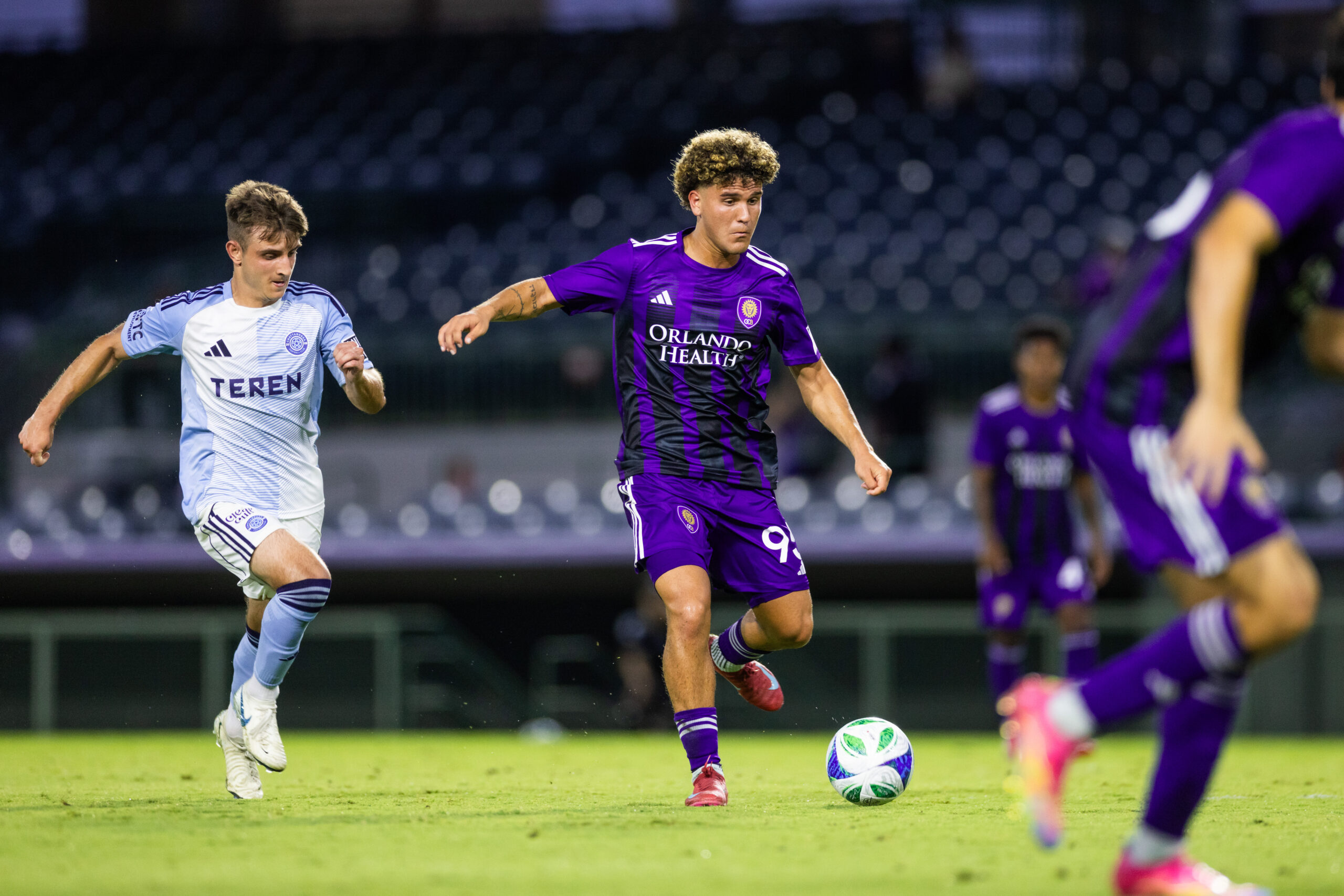
Hello, Mane Landers! I hope all is well with you down in Florida. I’ve been staying busy at work and will cover high school lacrosse and softball this week. Our beloved Lions lost, but OCB picked up a big win, while the Pride were off over the weekend. We have plenty to cover today, so let’s get to the links.
Orlando City Falls to Chicago Fire at Home
Orlando City fell 3-1 to the Chicago Fire Saturday at Inter&Co Stadium. The Lions trailed 3-0 in the first half before Alex Freeman pulled one back for Orlando just before halftime. It was not enough to spark a late comeback, as the Lions have now lost back-to-back matches within the past week. The Lions played the match without Head Coach Oscar Pareja, who was serving a one-match suspension after receiving a red card in the match against Atlanta United on Wednesday. Orlando City Assistant Coach Diego Torres was on the sidelines for this match. The Lions are off this weekend, with their next match on the road on June 14 against the Colorado Rapids.
Pride Players on International Duty
Multiple Orlando Pride players were in action over the weekend, representing their countries while away on international duty. Angelina captained the Brazil Women’s National Team, while Marta started on the bench and played in the second half as Brazil defeated Japan 3-1 in a friendly.
Barbra Banda scored for Zambia in a 1-1 friendly draw against Botswana. Grace Chanda and Prisca Chilufya also started in the match.
Pride defender Zara Chavoshi was on the bench for the Canadian Women’s National Team but did not play as Canada beat Haiti 4-1 in a friendly.
Pride goalkeeper Anna Moorhouse was on the bench as England defeated Portugal 6-0 in a UEFA Women’s Nations League matchup.
OCB Defeats Eastern Conference Leader Chattanooga FC
Orlando City B defeated Chattanooga FC 2-1 Sunday at Osceola County Stadium. Shak Mohammed scored the opening goal early in the first half for the Young Lions. Chattanooga FC found an equalizer just before halftime. In the second half, we had to wait all the way until stoppage time for another goal as Noah Levis scored the winner for OCB. The Young Lions are ninth in the Eastern Conference with 14 points. OCB will be on the road to take on Huntsville City FC Friday.
USWNT Beats China in Friendly
The U.S. Women’s National Team defeated China 3-0 Saturday at Allianz Field in St. Paul, MN in a friendly. Orlando Pride defender Emily Sams came off the bench in the second half and played 21 minutes. Fellow Pride defender Kerry Abello was on the bench but did not play. Defender Naomi Girma made her first appearance for the USWNT this year after dealing with injuries. The USWNT dominated from the start as Catarina Macario scored the opening goal in the match. Sam Coffey made it 2-0 lead just before halftime. In the second half, Lindsey Heaps scored the final goal of the match. The USWNT will be back in action Tuesday night against Jamaica at Energizer Park in St. Louis.
LAFC Defeats Club America to Qualify for FIFA Club World Cup
LAFC overcame a 1-0 deficit to defeat Club America 2-1 in extra time in a play-in game Saturday at BMO Stadium and booked its spot in the FIFA Club World Cup. LAFC trailed 1-0 through much of the match, but late in the second half, Igor Jesus scored the equalizer just before stoppage time. In extra time, Denis Bouanga scored the winning goal. LAFC will join fellow MLS sides Inter Miami and the Seattle Sounders in the FIFA Club World Cup. The tournament begins on June 14, and LAFC will face Chelsea, Flamengo, and ES Tunis in the group stage.
Paris Saint-Germain and Cruz Azul Win Continental Titles
Paris Saint-Germain finally won its first UEFA Champions League trophy, beating Inter Milan 5-0 Saturday in Munich. Desire Doue scored twice and added an assist. Achraf Hakimi, Khvicha Kvaratskhelia, and Senny Mayulu also contributed goals. Paris Saint-Germain completed the treble, winning Ligue 1, Coupe de France, and the Champions League this season. Luis Enrique became the second manager to win a treble with two different clubs, joining Manchester City’s Pep Guardiola. Paris Saint-Germain also became only the second French club to win the Champions League title, with Marseille lifting the trophy back in 1993. For Inter Milan, it was the second time in three years the club lost the final, falling to Manchester City two years ago. Inter suffered the biggest defeat in UEFA Champions League final history.
Sunday in Mexico, Cruz Azul routed the Vancouver Whitecaps 5-0 Sunday at Estadio Olimpico Universitario to win the Concacaf Champions Cup. Angel Sepulveda scored two goals as Cruz Azul dominated the matchup. The Whitecaps were unable to record a shot on target. It’s the third straight final that an MLS side has lost to a Liga MX side since 2022, when the Seattle Sounders lifted the trophy. With the win, Cruz Azul has qualified for the 2025 FIFA Intercontinental Cup and the 2029 FIFA Club World Cup.
Free Kicks
- Tom Bogert of GiveMeSport.com shared his insight on which MLS players to watch during the summer transfer window for potential moves. Orlando City defender Alex Freeman was mentioned, as well as Charlotte FC’s Patrick Agyemang and the Chicago Fire’s Brian Gutierrez.
- Former Orlando Pride Head Coach Tom Sermanni reflected on his time with the club. He provided insight into his journey from coaching the Pride as an expansion team, including the early challenges, Orlando’s first NWSL playoff appearance, mentoring young coaches such as Khano Smith and Seb Hines, and more.
- Washington Spirit Head Coach Jonatan Giraldez is reportedly set to become the next manager at OL Lyonnes and will join the club in June. Assistant Coach Adrian Gonzalez will be promoted to head coach for the Spirit.
- U.S. Men’s National Team Head Coach Mauricio Pochettino has added Walker Zimmerman, Nathan Harriel, and Paxten Aaronson to the roster to replace DeJuan Jones, Sean Zawadzki, and Folarin Balogun, who are all out due to injuries. The USMNT will play friendlies against Turkey on June 7 and Switzerland on June 10.
- The LA Galaxy finally snapped their record 16-match winless streak on Saturday, defeating Real Salt Lake 2-0.
That will do it for me today, Mane Landers. Enjoy your Monday and I’ll see you next time.
-
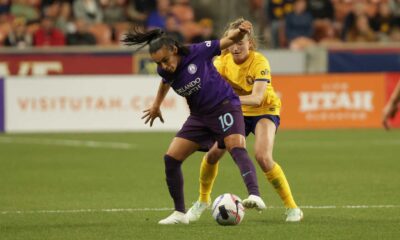
 Orlando Pride2 weeks ago
Orlando Pride2 weeks agoOrlando Pride vs. Utah Royals: Preview, How to Watch, TV Info, Live Stream, Lineups, Match Thread, and More
-

 Orlando City2 weeks ago
Orlando City2 weeks agoOrlando City vs. Portland Timbers: Preview, How to Watch, TV Info, Live Stream, Lineups, Match Thread, and More
-

 Orlando City2 weeks ago
Orlando City2 weeks agoOrlando City vs. Nashville SC: Five Takeaways
-
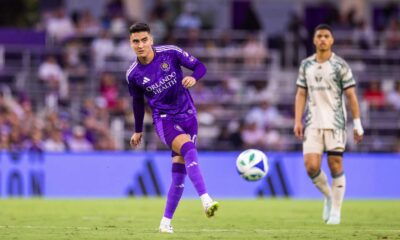
 Orlando City1 week ago
Orlando City1 week agoOrlando City vs. Portland Timbers: Final Score 1-0 as Lions Tie Club-Record 12-Game Unbeaten Streak
-

 Orlando City2 weeks ago
Orlando City2 weeks agoOrlando City vs. Nashville SC, U.S. Open Cup: Preview, How to Watch, TV Info, Live Stream, Lineups, Match Thread, and More
-
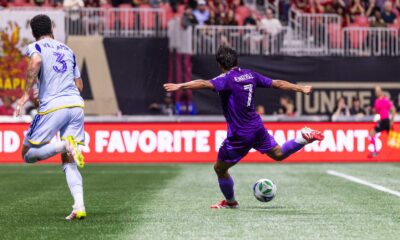
 Orlando City6 days ago
Orlando City6 days agoOrlando City vs. Atlanta United: Final Score 3-2 as Late Araujo Red Card Turns Orlando Lead into a Loss
-

 Podcasts2 weeks ago
Podcasts2 weeks agoSkoPurp Soccer Episode 87: Kansas City Current Rewind, Utah Royals Preview, and More
-
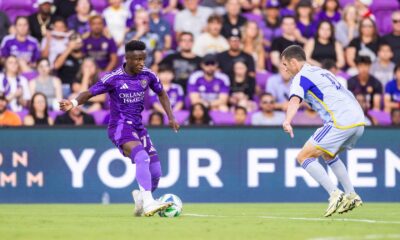
 Orlando City7 days ago
Orlando City7 days agoOrlando City vs. Atlanta United: Preview, How to Watch, TV Info, Live Stream, Lineups, Match Thread, and More


